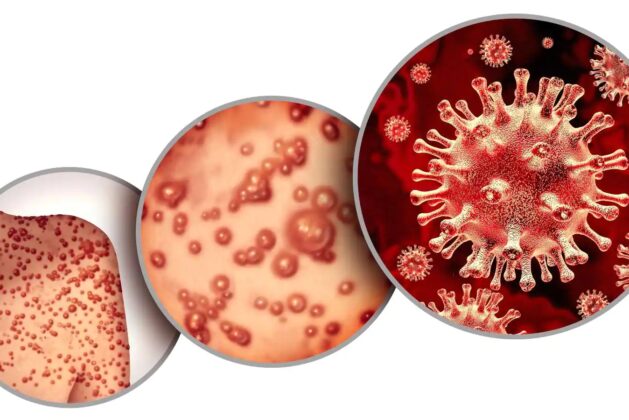[ad_1]
Monkeypox and smallpox are viral diseases from the virus family. However, its symptoms are usually not serious. Scientists have known about it since 1958, when it was found in monkeys used for laboratory research. Monkeypox is most common in Central and West Africa. But in May 2022, health officials began reporting outbreaks of the virus in several regions outside of Africa.
Know when monkeypox cases started to spread
WHO is on July 23, 2022 (WHO) Director-General Tedros Adhanom Ghebreyesus declared the rapidly spreading epidemic a “public health emergency of international concern”. Worldwide, there were more than 16,800 confirmed cases of monkeypox by the end of July, compared to more than 1,000 cases reported to the World Health Organization (WHO) in early June.
what is monkeypox
Monkeypox is a zoonotic virus, meaning it is transmitted from animals to humans. In addition to monkeys, it has also been found in other primates in Africa.
People can also spread it to each other. The first known human infection occurred in 1970 in the Democratic Republic of the Congo.
Know how it spreads
It can be spread from person to person by close contact. Someone infected with it can spread it to others:
- exposure to body fluids such as blood or semen
- Exposure to monkeypox lesions on the patient’s skin (including inside the nose and mouth) via respiratory droplets.
- From infected items that come into contact with body fluids, such as bedding or clothing.
- Monkeypox can also be transmitted from animals to humans. Viruses can be transmitted from an infected animal to a human if they are bitten or scratched. According to the CDC, any mammal can be infected with monkeypox.

Infected people can pass monkeypox to their pets such as:
- Patting, caressing, hugging, kissing, licking, sharing a bed to sleep in, sharing food.
- If you have monkeypox, stay away from wild animals and pets. So that spreading in them can be avoided.
- You can also get monkeypox if you eat raw contaminated meat.
- The virus can enter your body through cracks in your skin (which you may not even be aware of) or through your mouth, nose or eyes.
- From droplet infection by close contact long enough. This is because most drops do not travel very far.
In addition to general symptoms, symptoms of new monkeypox may include:
painful pimples blisters that can start in the thighs, genitals or around the anus
Blisters that look like pus-filled pimples or open sores
Blisters or sores of different sizes, even if they are in the same area
Some people may not have a fever or flu-like symptoms before the blisters. Some people have no fever at all.
In some cases, other symptoms such as pain around the anus, feeling the urge to defecate (tenesma) even after a bowel movement, bleeding in the lower part of the large intestine (rectum) and painful swelling of the anus and rectum can be observed.
mucosa (proctitis). blisters
some other symptoms
- fever
- fatigue
- Headache
- muscle pain
- chills
- back pain
- Sore throat
- dry cough
- swollen lymph nodes
- Shortness of breath (in severe cases).

Realize how serious monkeypox is?
The disease usually passes in 2 to 4 weeks. It can be quite serious, especially in children who have been exposed to a large number of viruses or in people with other medical conditions or weakened immune systems.
encephalitis
sepsis
bronchopneumonia
Corneal infection with possible vision loss
how it can be diagnosed
history and investigation
The doctor will look at the sores and ask in detail about your symptoms, such as when you were exposed to the virus. They will try to distinguish them from similar diseases, they can be infectious diseases similar to monkeypox.
- Measles
- chicken pockets
- syphilis
- Allergies
- Itching
- Bacterial skin infections – Bacterial blisters, pimples, etc. Lab tests can determine if you have monkeypox.
Is there a possible treatment for this?
There is no specific treatment for monkeypox. Only symptomatic medicine is given. To control the outbreak, doctors may give measles vaccines along with antiviral drugs and vaccinia gamma globulin (made from the blood of people who have recently been vaccinated against measles). If you have been vaccinated against measles (within the past 3-5 years), you may have some protection against monkeypox. Research shows that the measles vaccine is 85% effective in preventing monkeypox.
Monkeypox can increase pregnancy complications
This can increase the chances of complications, such as: miscarriage or stillbirth.
Should I wear a mask?
According to the CDC, wearing a surgical mask is mandatory, especially if you have respiratory problems such as cough, shortness of breath, or a sore throat. This can reduce the risk of infection.
[ad_2]



Leave a comment